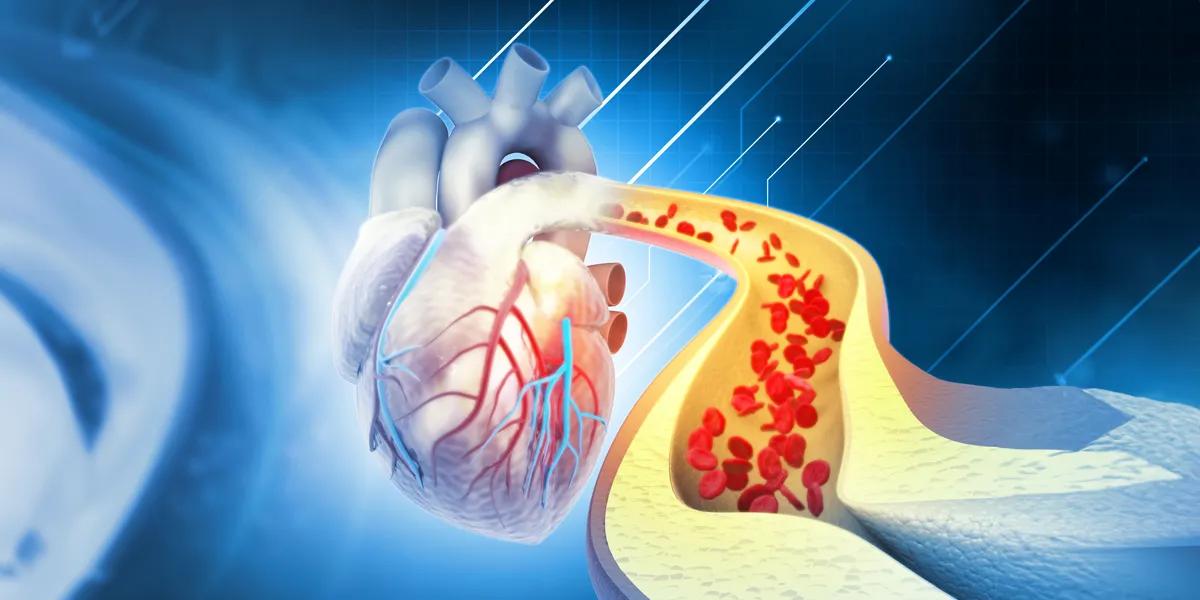How Do you Reduce Cholesterol Naturally?

Did your doctor advise you to avoid deep-fried food and full-fat dairy products? Have you ever wondered what is the possible reason behind this?
Food items like fries and full-fat dairy products are rich in cholesterol, a waxy substance in your body. It functions as the building block for cell membranes, and your body also requires it to produce bile, hormones, and vitamin D.
However, when the cholesterol level exceeds the optimal range, it accumulates inside your arteries and might constrict them. Eventually, it raises the risk of coronary artery disease.
Find your heart's true age to prevent complications.Heart Age Calculator
Different Types of Cholesterol in your body:
- HDL (High-density lipoprotein) cholesterol is often termed good cholesterol as it removes excess cholesterol from arteries and transports it back to the liver. This process is known as reverse cholesterol transport. Finally, the liver flushes the excess cholesterol from your system, thus minimising your heart disease and stroke risk.
- LDL (Low-density lipoprotein) cholesterol is also known as “bad” cholesterol because it accumulates inside your arteries and may form plaque. Eventually, your arteries become hardened and narrowed- a condition known as atherosclerosis.
- Triglycerides are fats in our blood, which we receive from oily foods like butter. The human body uses this extra fat from blood when it needs energy. However, high triglyceride levels may increase cardiovascular disease risk.
- Very low-density lipoprotein (VLDL) is another bad cholesterol that may increase plaque buildup.
- Total cholesterol is the summation of LDL and HDL cholesterol in your blood.
Top 7 Tips to Lower Your Cholesterol Naturally
Here are some tried and tested techniques to lower cholesterol without medication:
1. Plan your Diet Around Monounsaturated Fats
Monosaturated fats are fats that remain liquid at room temperature but transform into solid when chilled. They are abundant in nontropical vegetable oils like olive, canola, peanut, safflower, and sesame oil.
Avocados, pumpkin seeds, almonds, hazelnuts, and pecans are rich in monosaturated fats.
Monounsaturated fats reduce cholesterol levels in the blood and minimise the risk of heart disease and stroke. Additionally, they promote the growth and development of new cells.
How to Incorporate Monounsaturated Fats in Diet
- Use safflower, sunflower, and sesame oil as your cooking medium.
- Dress your salads with olive oil.
- Consume nuts like almonds, hazelnuts, pecans, and pumpkin seeds as your snacks.
- Load your sandwiches with avocados and olives.
2. Avoid Trans Fats in Packaged Food Items
Trans Fats are harmful to your heart health as they increase the LDL level and decrease the HDL level. Additionally, they are carcinogenic as they undergo industrial hydrogenation (a process involving the addition of hydrogen to vegetable oils at high temperatures).
However, food companies often lace packaged baked food items with trans fat as it increases the product’s shelf life.
A press release by the International Agency for Research on Cancer (IARC) also pointed out that trans fatty acids from industrial processed foods can lead to ovarian cancer.
Check out for the “partially hydrogenated oil” label on packaged foods’ ingredient list, and avoid products containing them.
Common Tans Fats Containing Food
- Margarine and shortening
- Deep-fried fast foods
- Pizza
- Pastries
- Doughnuts
- French fries
3. Add Fibre to Meals
Consuming foods rich in soluble dietary fibres improves your cholesterol level as it binds to the small intestine’s inner lining and traps fat particles within them.
In this way, the cholesterol is prevented from entering your bloodstream or getting deposited in other parts of the body.
Food Rich in Soluble Fibres
- oats
- carrots
- apple
- beans
- peas
- flaxseeds
- chia seeds
4. Exercise Daily
Work out for at least 30 mins for five days a week to improve your cholesterol level. Regular exercise will increase your HDL and reduce your LDL.
A 2013 research by Di Raimondo et al. revealed that walking for 1 hour a day on 5 days of the week for 24 weeks reduced total cholesterol levels from 192.15 mg/dl to 185.78 mg/dl among 176 candidates.
Common Cardio Exercises
- Walking
- Cycling
- Burpee
- High knees
- Stair climbing
- Jumping jack
5. Say No to Smoking
Smoking is hazardous for heart health as it reduces the HDL level in arteries. The nicotine in tobacco also increases LDL and VLDL levels,.
Thus leading to the accumulation of lipids in the arterial wall and enhancing atherosclerosis risk.
Quit smoking today to improve your cholesterol. You may seek psychological counseling to avoid triggers for smoking or try out nicotine gums, sprays, patches, and inhalers.
6. Practise Healthy Sleeping Habits
Doctors advise 7-9 hours of quality sleep to lower cholesterol without medication. A 2020 study by Chen Xing et al. stressed that sleep deprivation may be the culprit for increased serum cholesterol levels and accelerated cholesterol accumulation in the liver.
The American Heart Association also recommends quality sleep to reduce the risk of cardiovascular diseases. Sleep deprivation enhances inflammation in your body, which further elevates heart disease risk.
Improve your sleep hygiene by maintaining a bedtime routine, avoiding screen time before sleep, and avoiding caffeine and alcohol after dinner.
7. Consume Omega-3 Fatty Acids-Rich Food
Try to include foods rich in omega-3 fatty acids in your meals daily. The three most important omega-3 fatty acids are ALA (alpha-linolenic acid), DHA (docosahexaenoic acid), and EPA (eicosapentaenoic acid).
A study led by Y K Goh pointed out that omega-3 fatty acids can significantly reduce plasma triacylglycerol levels without impacting your good HDL cholesterol.
In addition to lowering cholesterol levels, omega-3 fatty acids are also beneficial in managing blood pressure. About 3 mg omega-3 fatty acids consumption can reduce your systolic blood pressure by up to 4.5 mm Hg.
Food Rich in Omega-3 Fatty Acids
- flaxseed
- chia seeds
- walnuts
- salmon
- mackerel
- tuna
- herring
- sardines
How We At Fitterfly Can Help You?
Though cholesterol supports several body functions, such as bile, hormones, and vitamin D production, high cholesterol levels can adversely impact health. In such conditions, doctors often advise lifestyle modifications to improve your cholesterol naturally.
Need help regarding appropriate diet and exercise to facilitate cholesterol reduction? We at Fitterfly have India’s first heart health program, FitHeart, which aligns with AHA’s Life’s Essential 8 guidelines to manage your heart health.
Our dedicated coaches will craft customised diet and exercise plans based on your present health parameter. Let us be a part of your healthy heart journey.
For further details, check out our FitHeart Program today or call us at 08047360646. We will be more than happy to help you.
This blog provides general information for educational and informational purposes only and shouldn't be seen as professional advice.



















